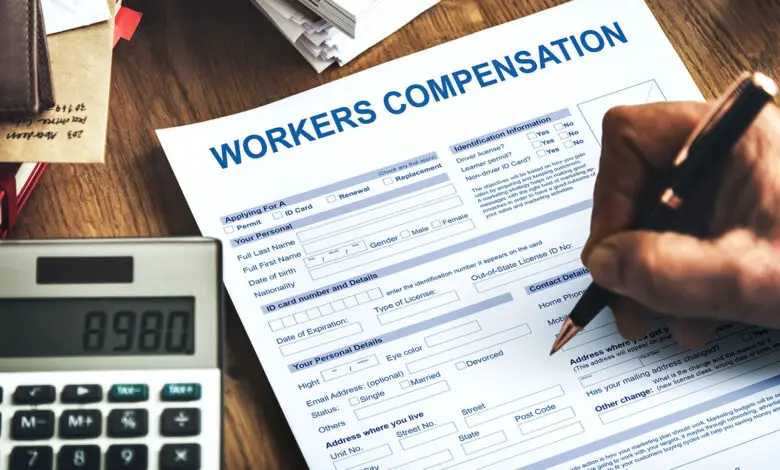
Workers’ compensation is a program designed to protect workers who are injured or become ill while on the job. This program provides benefits to those individuals until they recover from their illness or injury. Many people refer to this as a disability insurance program.
The workers’ compensation provides healthcare and cash benefits. Each state determines the requirements for the program, and the benefits vary greatly. At this time, Texas is the only state that does not have a government-mandated program.
Workers’ compensation in Ohio

Every business owner in Ohio with at least one employee must maintain worker’s compensation coverage, such as that offered by ageeclymer.com. Corporate officers are considered employees just as other workers are in Ohio, with the exception being volunteers helping a nonprofit organization. Other exceptions also exist. For instance, a domestic worker who makes less than $160 in a quarter doesn’t need to have workers’ compensation coverage. In addition, volunteers rarely require coverage.
Employers in Ohio purchase this coverage through the state-run program as opposed to a private insurance company. This program pays out four major types of benefits. What benefits might a person receive if they file a successful workers’ compensation claim?
Medical Benefits
Individuals who are injured or become ill while on the job are eligible for medical benefits through the workers’ compensation program. They must first report the injury or illness to the employer before visiting a doctor. Once this claim has been filed and approved, the program will cover medical expenses, such as doctor’s bills, medications, physical therapy, and more.
The worker won’t pay any deductibles or co-pays. Furthermore, there is no limit on the medical bills, unless state law dictates otherwise. The program continues paying until the covered employee reaches maximum medical improvement. At that time, only those costs related to helping the employee maintain the maximum medical improvement are covered.
The employee may receive an impairment or disability rating. Their work restrictions may be defined, and the settlement process begins. An attorney is often needed at this stage if one hasn’t already been retained.
Disability Benefits

Disability payments are paid when the person cannot work because of the illness or injury they sustained on the job. These payments replace part of the worker’s salary, and the amount the employee receives depends on their earning capacity, state regulations, and their disability. The time these payments will be made depends on the extent of the disability.
Temporary disability payments are made if the employee will be able to return to work in the future or has already returned on a part-time basis but is limited in what they can do. Permanent disability, in contrast, is paid when the employee will never be able to return to their former position. The amount of time the benefits will be paid depends on the state where the injury or illness occurred.
The program takes the prior twelve months into consideration when determining how much an employee will receive in disability payments. The average weekly wage is determined, and the program typically pays two-thirds of that amount in disability payments. Certain states set the maximum amount based on the average weekly wages of all workers in the state.
Benefits aren’t paid automatically. There is usually a waiting period. However, most states begin making disability payments within three to seven days.
Rehabilitation Benefits
Permanently disabled individuals might find they are eligible for vocational rehabilitation. These benefits cover the costs of a skills assessment and testing along with job training. With the help of these benefits, a worker will be able to find new employment that takes into consideration their disability.
In addition, these benefits cover things such as tuition, books, and other educational expenses. Job development and placement are often covered along with resume assistance. With the help of this retraining, the employee can find a job that pays close to what they were earning prior to their injury or illness. Most states now require workers’ compensation programs to pay for up to two years of education or vocational training for men and women who are disabled as a result of a job they held.
Death Benefits

Sadly, some individuals lose their lives while working. When this happens, loved ones left behind will find they are eligible for workers’ compensation or survivor’s benefits. These benefits are similar to life insurance in many ways. Family members who may be eligible to receive death benefits include the spouse of the deceased worker, their minor children, and elderly parents who were living in the worker’s household and relying on them for support.
However, payments to loved ones are only one of the death benefits covered under a worker’s compensation program. The program will also pay for any burial costs and funeral expenses for the deceased employee rather than placing this burden on the family. Lost income may be covered under the program, and this varies by state.
The family may wish to consult with an attorney to learn what death benefits will be paid and if they will receive the funds as a lump sum or in installments. The statute of limitations applies when a person wishes to receive death benefits. The attorney will ensure all deadlines are met. Currently, the family is required to file a claim within one year of a fatal injury and two years of an individual’s death from an occupational illness.
A person may not become ill for several years following exposure to a toxin while at work. Death benefits may still be paid in this situation if the family can show their family member’s death was the result of a work illness or injury.
Workers’ compensation programs are designed to protect employees while they are carrying out their job duties. Always know the law when it comes to this program, who is covered, and what benefits are to be paid. If an employer fails to file a claim or doesn’t make payments in a timely manner, contact an attorney for assistance.
Most attorneys work on a contingency basis, meaning they don’t get paid until they win the case. In addition, they only receive a portion of the collected funds. An employee or the family of a deceased individual has nothing to lose when speaking to an attorney. Make this call today to ensure fair treatment when handling a workers’ compensation claim.

